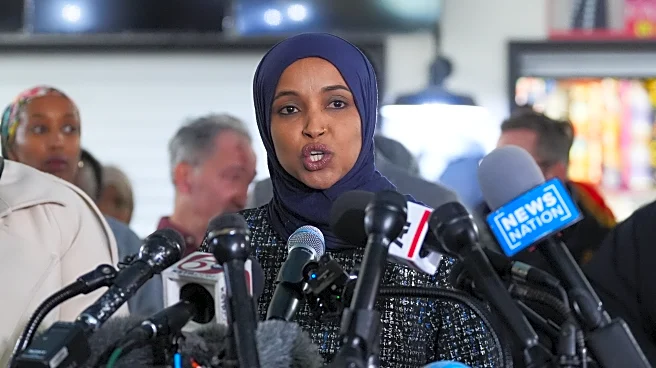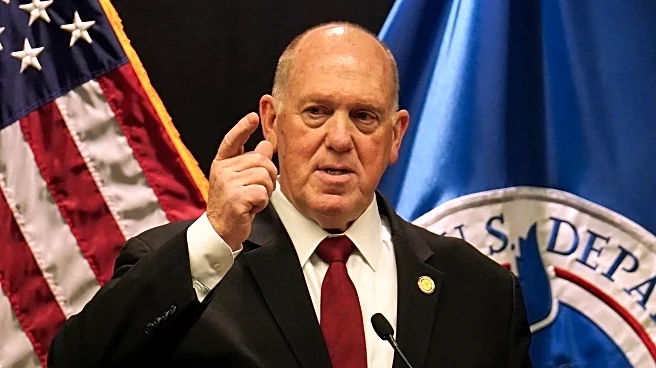What is the story about?
What's Happening?
AstraZeneca has reached an agreement with the Trump administration to offer its medicines at most favoured nation (MFN) prices in the United States. This deal follows a similar agreement with Pfizer, aiming to reduce prescription drug costs for Americans. President Trump announced that AstraZeneca will provide significant discounts on its extensive range of prescription drugs, with some prices being the lowest globally. In exchange, AstraZeneca will receive a three-year exemption from Trump's 100% pharma tariffs, as it commits to a $50 billion investment program in new manufacturing and R&D facilities in the US. The company has begun construction on a $4.5 billion active pharmaceutical ingredient plant in Virginia and plans to open a cell therapy manufacturing facility in Maryland next year, followed by a major R&D center in Massachusetts in 2026. Additionally, AstraZeneca's products will be available at discounts of up to 80% through the TrumpRx direct-to-consumer sales channel launching in 2026.
Why It's Important?
This agreement is significant as it addresses the high cost of prescription drugs in the US, which are substantially higher than in other developed countries. By offering medicines at MFN prices, AstraZeneca aims to make life-saving treatments more accessible to American patients, particularly those with cancer and chronic diseases. The deal also supports the US's role as a leader in pharmaceutical innovation, encouraging other wealthy nations to contribute more to funding medical advancements. The initiative aligns with President Trump's objective to lower drug prices, potentially benefiting millions of Americans and influencing global pharmaceutical pricing strategies.
What's Next?
AstraZeneca's commitment to invest in US manufacturing and R&D facilities is expected to bolster the country's pharmaceutical industry and innovation capacity. The TrumpRx direct-to-consumer sales channel will serve as a hub for direct purchasing systems, potentially transforming how Americans access medications. As AstraZeneca and Pfizer set precedents, other pharmaceutical companies may follow suit, leading to broader industry changes. The impact on Medicaid patients and the healthcare system will be closely monitored, with potential adjustments to the MFN pricing model based on its effectiveness in reducing drug costs.
Beyond the Headlines
The MFN pricing model raises ethical questions about equitable access to medications globally. While it benefits US patients, it may pressure other countries to adjust their pricing strategies, potentially affecting their healthcare budgets. The deal also highlights the balance between encouraging pharmaceutical innovation and ensuring affordability, a challenge faced by governments worldwide. Long-term, this approach could influence international trade agreements and healthcare policies, reshaping the global pharmaceutical landscape.
















